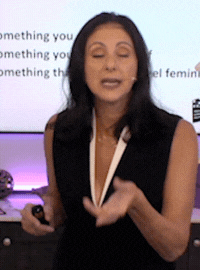Imposter syndrome can feel like a constant shadow, especially for women writers striving to make their mark in the literary world. This nagging self-doubt and fear of being “found out” as a fraud can hold back even the most talented individuals. The good news? You’re not alone, and more importantly, you can overcome it.
This article explores how women writers can move past imposter syndrome and step into a space of empowerment where they own their unique voices and creativity.
What Is Imposter Syndrome and How Does It Affect Women Writers?
Imposter syndrome is a psychological pattern where individuals doubt their abilities and fear being exposed as fraud, despite evidence of their accomplishments.
The Unique Challenges for Women Writers
- Cultural Expectations: Women often face societal pressures to be perfect, which can heighten self-doubt.
- Comparison Trap: Social media and publishing success stories can create unrealistic benchmarks for achievement.
- Underrepresentation: Seeing fewer women in leadership roles within the literary and publishing industries can exacerbate feelings of inadequacy.
Acknowledging these challenges is the first step toward overcoming them.
Step 1: Recognize the Lies of Imposter Syndrome
Imposter syndrome thrives on lies. It tells you that:
- You’re not talented enough.
- Your success is due to luck, not skill.
- You’re one mistake away from being “found out.”
Reframe Your Thoughts
Replace these lies with empowering truths:
- “I am skilled and hardworking.”
- “My voice and perspective are unique and valuable.”
- “Mistakes are part of growth, not proof of failure.”
Practical Exercise
Write down your achievements and review them regularly. Seeing your accomplishments in black and white can help counteract feelings of inadequacy.
Step 2: Own Your Unique Voice
Every writer has a unique voice shaped by their experiences, perspectives, and passions. Instead of comparing yourself to others, focus on honing your authentic style.
How to Find Your Voice
- Write often and in different formats. Experimentation can help you discover what feels most natural.
- Reflect on your values and themes. What message do you want to share with the world?
- Embrace imperfection. Authenticity is more compelling than perfection.
Inspiring Example
Think of renowned writers like Maya Angelou, Chimamanda Ngozi Adichie, or Roxane Gay, who embraced their unique voices to create impactful, timeless work.
Step 3: Build a Support System
Imposter syndrome often thrives in isolation. Surrounding yourself with supportive peers, mentors, and communities can make a huge difference.
Join Writing Communities
- Online Groups: Platforms like Twitter, Reddit, and Facebook host active writing groups.
- Local Meetups: Writing workshops and book clubs offer opportunities to connect with fellow writers in person.
- Professional Organizations: Groups like Women Who Write or She Writes offer resources and networking opportunities.
Find a Mentor
Having a mentor can help you navigate challenges and build confidence in your craft. Reach out to someone you admire and ask for guidance.
Step 4: Celebrate Small Wins
Progress, not perfection, is the goal. Celebrate every step forward, no matter how small it may seem.
Why Small Wins Matter
- They build momentum and motivation.
- They remind you of your capabilities.
- They shift your focus from what you lack to what you’ve achieved.
Practical Tips
- Keep a “win journal” to record your achievements, such as finishing a draft or receiving positive feedback.
- Treat yourself when you hit milestones, whether it’s with a favorite book, a self-care day, or a celebration with friends.
Step 5: Transform Rejection into Fuel
Rejection is a natural part of the writing journey, but it doesn’t define your worth or talent.
How to Reframe Rejection
- See It as Feedback: Constructive criticism can help you improve your craft.
- Keep Perspective: Even bestselling authors faced rejection early in their careers.
- Use It as Motivation: Let rejection fuel your determination to succeed.
Inspiring Example
Did you know J.K. Rowling’s “Harry Potter” manuscript was rejected 12 times before being published? Her perseverance reminds us that rejection is just a stepping stone to success.
Step 6: Share Your Work Bravely
Sharing your writing can be intimidating, but it’s essential for growth. Whether it’s a blog post, article, or manuscript, putting your work out there helps you connect with readers and gain valuable feedback.
Overcoming the Fear of Sharing
- Start small: Share your work with trusted friends or in a writing group.
- Focus on progress, not perfection: Your work doesn’t have to be flawless to be meaningful.
- Remind yourself: Your story could inspire or help someone else.
Practical Tip
Create a personal website or blog to showcase your work. It’s a great way to build confidence while growing your audience.
Step 7: Empower the Next Generation
As you grow into an empowered writer, consider lifting others up along the way. Mentoring aspiring women writers can create a ripple effect of confidence and empowerment.
Ways to Give Back
- Share your experiences and lessons learned in blog posts, interviews, or workshops.
- Volunteer to mentor young writers or join programs like Girls Write Now.
- Advocate for greater representation and opportunities for women in the literary world.
The Empowered Writer’s Mindset
Overcoming imposter syndrome is a journey, not a destination. Here’s how to cultivate an empowered mindset:
- Practice Self-Compassion: Treat yourself with kindness and understanding, especially during setbacks.
- Focus on Your Why: Remember why you started writing and the impact you want to make.
- Keep Learning: Stay curious and open to growth. Every experience—good or bad—shapes you as a writer.
Are you ready to move from imposter syndrome to empowerment? Start by taking one small step today:
- Join a writing community. Surround yourself with supportive peers who uplift and inspire you.
- Share your work. Post a piece of writing online or submit it to a publication.
- Reflect on your achievements. Write down three things you’re proud of as a writer and revisit them whenever self-doubt creeps in.
Your voice matters, and the world needs to hear it. Take that first step today and embrace the empowered writer you’re meant to be!
Empowerment begins with action. Will you take that step toward claiming your voice? The journey may not always be easy, but it’s worth it—and so are you.





